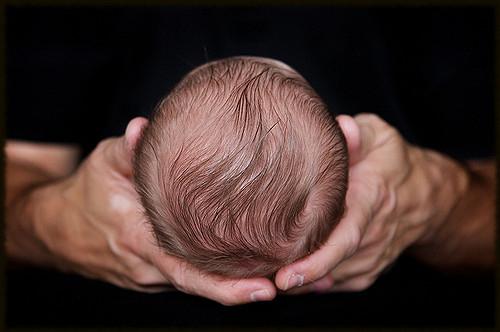Today the California Department of Public Health (CDPH) reported that two babies have been born with Zika-related microcephaly in that state. Officials said in a news release that both babies were born to mothers who acquired the infection outside of the United States.
One of the mothers returned with her infant to her home country, while the other is still in California, according to CDPH officials.
"This is a sobering reminder for Californians that Zika can cause serious harm to a developing fetus," said CDPH Director and State Health Officer Karen Smith, PhD. "We join the Centers for Disease Control and Prevention (CDC) in urging pregnant women to avoid travel to areas with known Zika transmission. Pregnant women who must travel to one of these areas should strictly follow steps to prevent mosquito bites and speak with a health care provider upon return."
Pregnant women can also contract the virus through sexual contact with infected partners. The CDC recommends that all pregnant women with partners who may be at risk for Zika virus use condoms or abstain from sex throughout their pregnancy.
While Aedes aegypti mosquitoes, the vectors for Zika, have been found in 12 California counties, the CDPH said there was no sign of local transmission with the two cases reported today. As of Jul 29, there were 114 travel-related Zika cases in California, 21 in pregnant women.
New US cases
According to the CDC, as of today there are 479 pregnant women in the 50 states who've tested positive for Zika virus and 493 in US territories. Those numbers are up by 46 and 61 women, respectively.
In addition, 15 babies have been born in the United States with Zika-related birth defects, along with 6 pregnancy losses related to Zika virus, the CDC said in its weekly update today. Last week the agency reported 13 babies with birth defects. The number of poor pregnancy outcomes in US territories remained at 1, a pregnancy loss.
In the past week the number of Zika cases in US territories—almost all in Puerto Rico—jumped again. The CDC noted 819 new cases, bringing the total to 5,548. The previous week saw a spike of 914 cases.
In US states the number climbed by 168, to 1,825. The CDC said all but 6 of those cases are travel related. Florida has reported 15 locally acquired cases, but the CDC has confirmed just 6 of them.
The CDC is reporting five cases of Guillain-Barre syndrome (GBS), a neurologic disorder. New York has the highest incidence of Zika virus infection, with 491 cases, followed by Florida, at 322.
Microcephaly investigation in Brazil
Yesterday Brazil's Ministry of Health announced an investigation into the 1,749 Zika-related microcephaly cases that country has seen since the epidemic began in October of 2015. The vast majority (1,400) of the birth defects are in the northeast part of the country, in and around the city of Salvador.
According to CNN, researchers are tracking 1,200 babies with microcephaly in that city to better understand the disease and its link to Zika virus. They are also trying to develop interventions that will help babies with microcephaly.
According to a story in Canada's Globe & Mail, the investigation will help answer why the microcephaly cases are clustered, if other illnesses are at play, and whether race, age, or economic status are influencing cases. A representative from the Ministry of Health is quoted in that story as saying the current "central theory" used to explain the Salvador cluster is that pregnant women are co-infected with chikungunya or dengue virus as well as Zika.
WHO: More microcephaly
Finally today, the World Health Organization (WHO) released its Zika situation report, stating there is no evident decline in the outbreak.
As of Aug 3, 14 countries or territories reported Zika-related microcephaly. Brazil had the most (1,749) followed by Colombia (21) and the United States (19, which doesn't include the 2 reported by the CDC today).
A total of 68 countries have reported Zika cases. Though microcephaly is the most severe outcome associated with Zika, the WHO reports that 16 countries also have documented cases of Zika-related GBS.
See also:
Aug 4 CDPH news release
Aug 4 WHO situation report
Aug 3 Globe & Mail article
Aug 3 CNN story
Aug 3 CDC Zika case counts
Aug 4 CDC Zika in pregnancy counts
Aug 4 CDC Zika birth defects counts




















